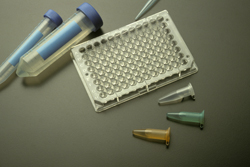DNA-related biomarker predicts cancer
The molecular understanding of the structure of chromosome ends, also known as telomeres, is pointing towards a central role of the telomere-maintenance enzyme telomerase in genomic instability and the clonal evolution of cancer. As a result, deregulation of telomerase has become an attractive biomarker for diagnosing cancer and a novel target for anti-cancer treatment. Based on this concept, the EU-funded Telomarker project aimed to bring together all leading expertise in the field of mammalian telomere research within the European Union. The plan was to test new and existing biomarkers of telomere function and dysfunction that might have clinical value. Using in vitro and in vivo model systems, the consortium members obtained detailed insight into the understanding of factors influencing telomere maintenance and the effects of the telomere-associated proteins on telomere dysfunction. New biomarkers associated with the recruitment and transcriptional regulation of telomerase in normal and cancer cells were identified. Following a thorough analysis of human tissue biobank samples, the length of telomeres emerged as a promising cancer biomarker. Incorporation of these biomarkers into clinical assays demonstrates their potential to be further developed into anticancer drug screening systems. The Telomarker study succeeded in translating into clinical practice the long-considered notion that DNA telomere integrity is involved in cancer development. Implementation of the project findings into improved cancer diagnosis and treatment is expected to benefit the health and well-being of European Union citizens.







